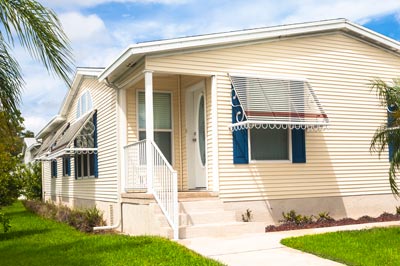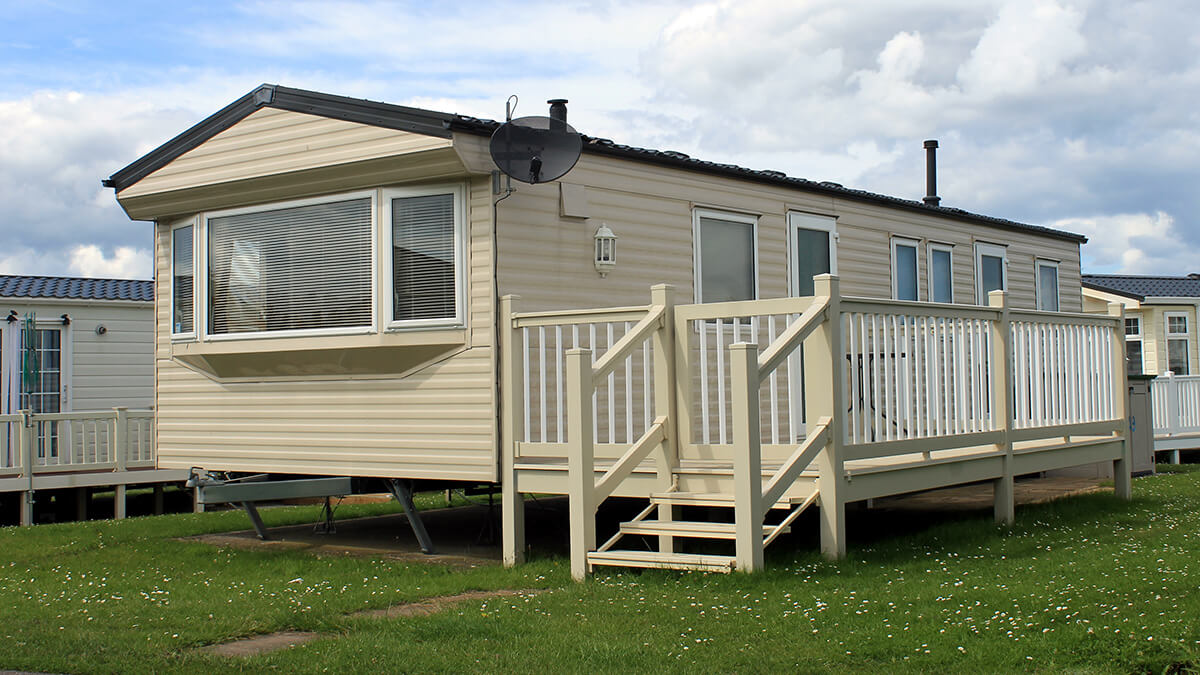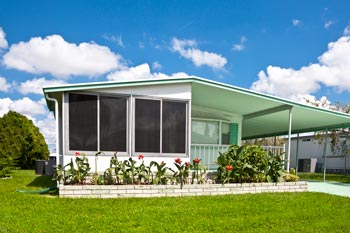What is Additional Living Expense?

Additional Living Expense (ALE) is a coverage that may be included with the policy you purchased to insure your home.* It applies after a covered loss when your home is considered not fit to live in. Your policy will pay the actual, reasonable, and necessary increase in your living expense to maintain your normal standard of living while you live elsewhere.
ALE coverage applies for the shortest period of time reasonably required to repair or replace the loss-related damages, or when the maximum amount of coverage for ALE is paid.
When could ALE apply?
Every situation will be different, but ALE may apply in these types of situations: *
- During a major storm, a tree falls on your roof and causes significant damage. While repairs are made, the home is not livable.
- A fire in the home causes major damage and as a result, the home is not fit to live in.
- A less severe fire, such as a kitchen fire, causes smoke damage throughout the home or causes extensive damage in the kitchen.
- Your water heater breaks and damages your home. Since you have no hot water and wet floors, you can't live in the home.
- A lightning strike knocks out power to your home. You can't live in the home because there is no electricity or heat.
- If you live in a manufactured home, a skunk could make its way underneath the home, chew the underbelly, and spray its scent. Due to the unbearable odor, you can't live in the home.
- The threat of an impending disaster, like a forest fire, causes local authorities to require evacuation. Even though your home may not be damaged, ALE may apply because you had to evacuate the home and incurred additional living expenses in the process.
* Policy terms, conditions and amounts of coverage vary and will apply when you have a loss. Please review your policy for complete details and maximum coverage amounts. Examples given are for illustrative purposes only and are not a guarantee of coverage. These situations are examples and not a guarantee of coverage. The facts of each actual loss determine whether ALE coverage applies.
What may be considered ALE?
- Temporary housing costs, like a motel or hotel, renting an apartment, home, mobile home, or travel trailer
- Increased meal costs
- Reasonable moving expenses to and from temporary housing
- Increased utility expenses
- Increased laundry expenses
- Increased transportation expenses
- Pet boarding
Examples of items not typically considered ALE
- Replacement of belongings like toiletries and clothing
- Temporary repairs to your home
- Entertainment expenses while you stay in temporary housing
You have a loss and can't stay in your home. What's next?
- File a claim. A claims representative will contact you and talk about your loss.
- Your claims representative will discuss with you whether ALE applies to your situation.
- The claims representative will ask you for a list of your normal living expenses and what they cost.
- Keep receipts for the extra expenses you pay for while living outside your home. Give them to your claims representative according to a schedule the two of you have agreed upon.
- Your claims representative will subtract your normal expenses from the additional costs you incurred, calculate the amount you're due, and issue you a payment if one is owed.
Real-life ALE examples
Cooking Practice
Ron and Rhoda own a home in southeastern Colorado. They have two children, Chad and Carissa. Chad wants to be a chef someday and was practicing his culinary skills by making bananas flambé. Things got a little out of control and the kitchen curtains caught on fire. Flames spread to the rest of the kitchen before Chad was able to grab the fire extinguisher and put the fire out.Ron and Rhoda were not happy with the state of their kitchen, but they were happy that Chad was okay. Smoke and fire damage made the home unlivable. The family rented an apartment for $600, including utilities, for the seven nights it took to make general repairs and clean up the smoke damage. Thanks to Chad's cooking skills, they were able to prepare food in their temporary housing so their dining expenses did not increase. They did have to pay to have some of their personal items stored, which cost $100. The family also had to pay $75 to do their laundry for the week.
Rhoda contacted their insurance company and the claims representative explained she has ALE coverage for the time her family was unable to live in the home.
Ron and Rhoda are owed the following for additional living expenses:
+ $600 for apartment
+ $100 for storage
+ $75 for laundry
- $0 for normal expenses
$775 owed to Ron and Rhoda
A Smelly Situation
Bob and Barbara own a home in northern Arkansas. They'd spent a fun weekend in Branson, Missouri, only to come home and find a skunk had burrowed its way underneath their mobile home, chewed through the underbelly, and sprayed its scent. The smell was intolerable, but the good news was their beloved Great Dane, Rocky, had stayed with a family friend while they were away.As you can imagine, they were pretty upset by the experience. They had nowhere to stay and had to board Rocky for three days at a cost of $75 per day. Bob and Barbara checked into a local motel where they spent two nights and three days at a cost of $100 per night. They also had to spend $50 per day on food. Bob missed work for three days, causing him to lose his pay of $150 a day.
When Bob contacted his insurance company about the loss, his claims representative told him the policy covers his additional living expenses while he and Barbara were unable to live in the home. Bob's claims representative also asked about their normal expenses, which were $600 per month for dining out.
Bob and Barbara are owed the following for additional living expenses:
+ $200.00 for the motel stay
+ $150.00 for food costs
+ $225.00 for boarding Rocky
- $ 59.19 for Bob's normal food expenses*
$515.81 owed to Bob and Barbara
*($600 per month x 12 months / 365 days = $19.73/day)
(Note: Bob's lost wages are not covered.)
Tornado Not Kind to Weather Buff
David owns a 1996 Palm Harbor mobile home in Missouri. David, a weather buff, was caught by surprise when a tornado tore through town one night. Many of his neighbors' homes were damaged but David seemed to get the worst of the storm. Almost the entire roof was torn off David's home, causing rain to pour inside. David was able to put a tarp over the exposed areas once the weather cleared, but the home was unlivable until repairs could be made.David checked into a motel for the six nights and seven days it took to make his home livable at a cost of $75 per night. The motel did not allow pets so David had to board his two cats, Oliver and Gus, for seven days at a cost of $20 per day. David had additional laundry expenses of $50 and his meals were $15 per day. Typically, he spends $210 per month dining out.
David contacted his insurance company and found out that he has ALE coverage for the time he was unable to live in his home.
David is owed the following for additional living expenses:
+ $450.00 for motel stay
+ $140.00 for boarding Gus & Oliver
+ $ 50.00 for laundry
+ $105.00 for food costs
- $ 48.30 for normal expenses**
$696.70 owed to David
**($210 per month x 12 months / 365 days = $6.90/day)


